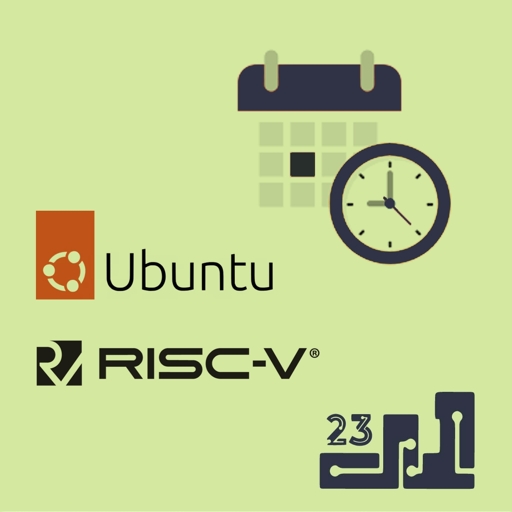As the conference approaches, it’s time to reveal some more aspects of the organization that make this year’s FOSSCOMM unique in history.
First of all, we would like to sincerely thank the speakers for their very interesting presentations. We wish we could include all 90 of them in the program, which is now closed, and you can view it here. In the technical section, we will have workshops and presentations on low-level system software and processor architecture, programming languages and runtime environments, artificial intelligence, space, office and web applications, with several communities participating. For the first time, there will be an official booth for RISC-V International, with several project participants present at the conference, and there will also be a series of talks on the subject.
For those who haven’t already heard, the new Ubuntu 23.10 will be named Mantic Minotaur, and we will have the official release party for the distribution on Saturday night, with beers, souvlaki, and various delicacies exclusively for the occasion, in the city where the legendary Minotaur lived.
But Open Source is not just code and a party; it is a movement that, among other things, fights for the free dissemination of knowledge and access to technology. It is the movement that brought the commons back into the spotlight, and with its actions, it is changing the world around us. Almost every technology product around us now uses open-source technologies, and it is very important to be in touch with developments in the field, beyond technical issues. For this reason, from the very beginning as an organizing team, we considered it very important to have talks on non-technical issues, such as legislation, privacy, intellectual property rights, and more. Open Source is not only about the engineers who maintain it; it also concerns its users and society at large.
Our goal is for everyone to be able to attend the conference, regardless of their knowledge background, to stay informed and interact. In addition to the talks, both technical and non-technical, we will also have a cafe throughout the conference, at the Student Center of the University Campus, where participants can, among other things, take the microphone and speak, organizing lightning talks on the spot on topics they find interesting and related to Open Source. Just like in 2018 when we organized the conference back then, we will also discuss its future, the future of communities, and open a conversation about the next conference and which community will take it on.
